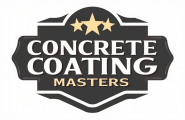Floor Coatings For Garages
Rhode Island and Massachusetts
Your Garage Floor Faces Constant Challenges
Garage floors endure relentless abuse from multiple sources. Beyond regular car and foot traffic, they battle:
- Dirt, dust, and debris
- Oil stains and automotive fluid leaks
- Chemical spills from household products
- Heat damage from hot tires
- Corrosive rock salt
- Moisture from rain and snow
- Thermal stress as concrete expands and contracts with temperature fluctuations
The Inevitable Damage
Without proper maintenance, years of this punishment will leave your garage floor showing clear signs of deterioration:
- Cracks throughout the surface
- Stubborn stains from spills, leaks, and efflorescence (white mineral deposits)
- Pitting - small crater-like indentations across the floor
- Uneven coloring and discoloration
- Spalling - areas where concrete crumbles and flakes away
Time for Action
Given the daily punishment your garage floor endures, isn't it time to show this hardworking surface some care? A professionaly-applied durable floor coating like Polyurea can prevent costly repairs later and keep your garage looking its best.
Garage Floor Epoxy: The Truth Behind Those Tempting DIY Kits
When searching for durable garage floor protection, those DIY epoxy coating kits at your local home improvement store might seem like the perfect solution. The packaging makes bold promises about transforming your garage floor with ease, all at an attractive price point that seems too good to pass up. But before you're swayed by that budget-friendly cost, ask yourself: "What am I really getting for this price?"
The Reality of Epoxy Performance
While epoxy coatings can provide adequate floor protection and give your garage a visual upgrade, they simply don't measure up to polyurea coatings in terms of durability, appearance, or long-term performance.
Critical Application Requirements
Successfully applying any floor coating demands:
- Meticulous surface preparation
- Precise material mixing
- Strict adherence to working time limits
- Careful monitoring of temperature and humidity conditions
Epoxy coatings are particularly sensitive to environmental conditions and cannot be applied during extreme temperatures—a significant limitation that polyurea coatings don't share.
The Cost of Cutting Corners
Floor coating application leaves little margin for error. Mistakes result in:
- Poor visual appeal
- Inadequate floor protection
- Premature need for repairs or complete reapplication
Why Professional Installation Matters
Polyurea coatings deliver superior results but require specialized knowledge and professional-grade equipment for proper installation. This is why they're typically applied by experienced contractors and carry a higher upfront cost—an investment that pays dividends in performance and longevity.
The next time you encounter a bargain-priced epoxy kit, remember that true quality and lasting protection require more than what those appealing price tags can deliver.
Polyurea Floor Coating
After extensive evaluation, we've identified the ultimate flooring solution. This premium coating system utilizes industrial-grade materials installed by certified technicians with specialized equipment, ensuring superior, long-lasting floor protection.
While budget-friendly alternatives only create superficial surface adhesion, polyurea coatings achieve deep concrete penetration for exceptional performance.
This advanced penetration establishes a robust molecular bond with the concrete substrate, creating an impermeable barrier against moisture, chemicals, and damaging elements. The resilient finish layer withstands heavy impacts, abrasion, chemical exposure, and prevents permanent staining from hot tire marks.
Our Installation Process
Step 1: Prepared Concrete Surface After Professional Diamond Grinding and Crack/Surface Restoration
Step 2: Foundation Basecoat High-Performance Polyurea
Step 3: Decorative Flake Layer Choose from 18 Custom Blend Options
Step 4: Protective Topcoat Polyaspartic Polyurea Finish
